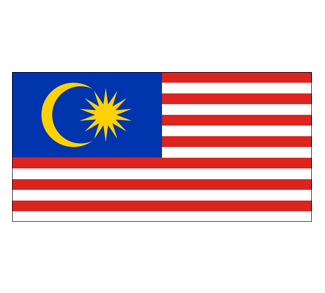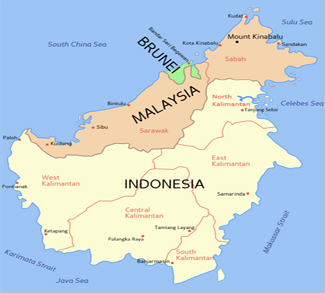In a dramatic first in world history and law, the Court of Appeal (COA) in Malaysia sunk to an all-time low on 14 October, 2013 in allowing an appeal by the government of Malaysia against a High Court decision which held that the Herald, a Catholic weekly, has the right to use the term “Allah” for God in its Malay language edition.
Judges Mohamed Apandi Ali, Abdul Aziz Abdul Rahim, and Mohd Zawawi Salleh presided.
Earlier, the High Court had ruled that the Home Minister was wrong, in law and in relation to the Constitution, to impose a restriction that the Herald should not use the term Allah in matters involving the Christian faith.
The Herald can submit an appeal to the Federal Court (FC) against the COA decision.
The fear is that it will be turned down on the grounds that it has not demonstrated that it has a case to be heard.
Alternatively, the FC may sit on the appeal if allowed, and nothing more will be heard of it. This has been a standard tactic employed by the government in past cases.
The fear among Muslim judges of going to hell for not being sufficiently Islamic, whatever it means, is another worry among those committed to the rule of law. The judiciary in Malaysia, often the subject of numerous complaints over creeping Islamisation, is packed with Muslim judges. It’s estimated that non-Muslim judges comprise less than ten percent of the judiciary, although non-Malays form 40 percent of the 28-odd million population.
The fact that the COA was composed of three Muslim judges whose credibility was suspect, presiding over a case involving the Christian faith, meant the cards were stacked against the Herald from the very beginning. The judge at the High Court level, where the Herald won, was a Buddhist and was widely seen as viewing the matter dispassionately i.e. being confined to the law and Constitution and thus ignoring the theological rhetoric emanating from across the divide.
The COA painted itself into a corner when it could not comment on the term Allah for God in Malay print of the Bible, Allah in Christian mass, prayer, song and music; and on the Sikhs using the same term in the Guru Granth Sahib, the Sikh Bible, in the Gurmukhi script in various dialects and languages. The COA merely confined itself to whether the Home Minister had acted improperly in administrative law – i.e. government policy – in restricting the Herald. It then went on to pontificate sanctimoniously on issues where it should not have treaded even if they were experts on the subject, which they were not. In doing so, the COA ignored the intention of the framers of the Constitution.
By what principle in law does the COA decide what anyone should call his or her God?
If both Muslims and Christians differ on their interpretation of Allah, as the COA claims to have discovered, what business is it of the COA anyway? Indeed, what business is it of the COA or the Home Minister for that matter to decide the Muslim version is Allah and the Christian version isn’t? In Islam, Allah is not the term for God but an attribute of God. God, in Islam, has 99 known attributes.
The possibility of Muslims in Malaysia being “confused” by Christians using the term Allah was another worry raised by the COA. The confusion theory does not hold water either because no one anywhere in the world outside Malaysia has raised it as an issue. The COA even conceded, while ruling against the Herald, that Arab Christians were using the term Allah for God in the Arab Bible.
Getting into politics, the COA claimed that its decision was in line with the social contract forged between the Malays and non-Malays in Malaya at the time of independence in 1957. The only social contract that matters is the Constitution. However, that does not appear to stop many extreme rightwing Malay politicians from claiming from time to time that there’s a social contract between Malays and non-Malays on the governance of Malaya. No one has yet produced this so-called social contract.
Clutching at straws, the COA claimed in explaining the Herald decision that it had a duty to protect Islam and Malays.
In fact, the question of any such protection by the judiciary does not arise as that role has been reserved for the Conference of Malay Rulers – the sultans — under the Constitution.
Besides, the real protection for Islam and the Malays lies in not removing certain Articles from the Constitution i.e. Article 3 on religion, Article 152 on the Malay language, Article 153 on reserving for them and the Orang Asal a reasonable proportion of places in the civil service, institutions of higher learning, scholarships and opportunities to do business; and Article 160 which among others defines the term Malay as a nation in Malaya, and not as Orang Asal (Native).
If anyone needs protection, it’s the Malay rulers from the federal government, which is bent on usurping their position as heads of Islam and Malay culture, customs and traditions in their states.
Islam is a state, not a federal matter in Malaysia.
Lawyer Lim Heng Seng left no doubt in a paper he presented at a recent Forum in Kota Kinabalu on Malaysia 50 years, Constitution, Religion and Freedom, that constant attempts were being made by the federal government under the ruling Umno Party to subvert the secular nature of the Constitution.
He maintained that Articles 3(1) and 3(4), read together, underlined in no uncertain terms the secular nature of the Malaysian Constitution and nation-state and its commitment to the rule of law and a common nationality.
The federal government, pointed out Lee, had no business meddling in Islam which was a matter for the Malay sultanates to handle, and the Syariah Court, as a subordinate court, could not encroach into the jurisdiction of the civil court.
He warned the federal government against practicing a form of warped logic all on its own and going out on a limb to ensure that any law in Malaysia was Syariah-compliant. Such so-called compliance was unconstitutional, and thereby illegal.
The COA decision will be considered as having no relevance in Sabah and Sarawak where the majority of the Malay-speaking Christians and Orang Asal in Malaysia live. The 20 Points and the 1963 Malaysia Agreement (20P/MA63), drawn up to facilitate these two nations in Borneo being in federation with Malaya, held that they would not involve any religion.
It appears that the COA has now gone out on a limb, and against the 20P/MA63, made it its business to decide what is and isn’t an essential part of the Christian faith.
The Allah decision is likely to further stoke nationalist passions in Borneo.
Already, activists are planning to petition the Queen of England for an official inquiry into the exact nature and actual circumstances surrounding the British departure from Sabah and Sarawak on 16 Sept, 1963 when the Federation of Malaysia came into being.
This follows the discovery of disturbing contents in declassified colonial documents on the issue.
Apparently, these documents make it clear that the British were convinced that Malaya would colonize Sabah and Sarawak after their departure.
These revelations clearly demonstrate, according to the activists, that the United Kingdom abandoned Sabah and Sarawak to Malayan colonialism.
This is held to be a violation of the UN Charter, the mandate of the UN Decolonization Committee, the UK’s responsibilities as a permanent member of the UN Security Council and its stewardship of the Commonwealth.
The opinions, beliefs, and viewpoints expressed by the authors are theirs alone and don’t reflect any official position of Geopoliticalmonitor.com.



![BANDAR SERI BEGAWAN, Brunei (July 1, 2013) U.S. Secretary of State John Kerry gives remarks during the U.S.-ASEAN Ministerial Meeting [State Department photo by William Ng/Public Domain] BANDAR SERI BEGAWAN, Brunei (July 1, 2013) U.S. Secretary of State John Kerry gives remarks during the U.S.-ASEAN Ministerial Meeting [State Department photo by William Ng/Public Domain]](https://dev.geopoliticalmonitor.com/wp-content/uploads/2016/02/Secretary_Kerry_at_the_U.S.jpg)
